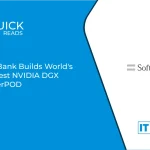何十年もの間、日本は世界的な技術革新の巨人として君臨してきました。日本の独創性は、その精密な製造技術と先進的なエレクトロニクスで有名です。 ロボティクス. .イノベーションを促進する知的財産(IP)の管理と保護です。商標紛争は長引き、特許出願は遅延に直面し、ライセンス契約は厄介です。また、コストのかかる侵害行為も後を絶ちません。このような問題が可能性を阻んでいるのです。今、強力な分散型テクノロジーが出現しています。ブロックチェーンです。知的財産管理における日本のブロックチェーン・ブームは、単なるトレンドではありません。日本のイノベーションのあり方を変えようとしているのです。この変化は、スマートなビジネスリーダーに新たなセキュリティ、効率性、チャンスをもたらします。.
ブロックチェーンが日本の知財にもたらすもの
ブロックチェーンは暗号通貨の観点から語られることが多いです。しかし、その真価はそのコア構造にあります。一つの弱点だけでなく、多くの人が共有する台帳を思い浮かべてください。大規模で接続されたネットワーク全体でコピーされ、更新されます。すべての取引と記録は暗号によって保護されています。これには、新しいデザイン特許の登録、ソフトウェア著作権の譲渡、ライセンス契約の締結などが含まれます。これにより、前のブロックと安全にリンクするブロックが作成されます。これにより、恒久的で透明性が高く、改ざんができない記録が作成されます。特許庁が2021年に受理した特許出願件数は289,200件、審査請求件数は238,557件で、それぞれ前年より728件、6,342件増加しました。これは、イノベーションの記録を取り扱うための、安全で検証可能かつ拡張性のあるシステムの必要性が非常に高いことを示すものでした。ブロックチェーンは、日本の複雑な知的財産状況を変えようとしています。ブロックチェーンは、所有権の証明、出所の追跡、より効率的な権利管理に役立ちます。.
従来のシステムは、中央当局と紙の証跡に大きく依存しています。発明がいつ作られたかを証明するのは困難です。また、商標が世界中でどのように使用されているかを追跡したり、所有権に関する紛争を迅速に解決することも困難です。これらの作業にはコストがかかり、ミスや操作の可能性もあります。ブロックチェーンは単一障害点を取り除きます。また、明確なタイムスタンプと監査証跡も追加されます。この信頼レイヤーは、誠実さや正確さといった日本のビジネス価値観に適しています。
こちらもお読みください: 小規模言語モデルがエンタープライズAIの次の大きな潮流となる理由
IPマネジメントの課題に正面から取り組むために

日本の企業やクリエイターは、知的財産に関する独特のハードルに直面しています。膨大な量のイノベーションには、強固なシステムが必要です。グローバルな商取引の性質上、国境を越えたシームレスな知的財産の保護とライセンシングが求められます。多くのパートナーとの複雑なサプライチェーンは、共有された知的財産権のもつれたネットワークを作り出します。
によると、偽造品による経済損失は世界全体で4,670億米ドルに上ります。 OECD. .これらの権利を追跡し、行使することは困難です。デジタルコンテンツやソフトウェアによって、知的財産のコピーや侵害はより迅速かつ容易になりました。特許の藪は、イノベーションを保護する代わりに、イノベーションを阻害する可能性があります。重なり合う特許の網の目。特に「パテント・トロール」による訴訟費用は、研究開発の資金となり得る資源を浪費します。このような問題は、小さな悩みにとどまらず、競争力や市場価値を損ないます。ある調査によると、パテント・トロールをめぐる法的紛争は、企業に最大で以下のような損害を与えています。 US$ 290億ドル 世界中で毎年
ブロックチェーンの動き
ブロックチェーンの有望性は、日本中の多くの業界で急速に現実のものとなりつつあります。私たちは、説得力のある実世界での応用を目の当たりにしています:
- イノベーションの確保:大手電機・自動車企業がプライベート・ブロックチェーン・ネットワークに注目。彼らは研究開発プロセスの各ステップを注意深く追跡したいと考えています。エンジニアが設計変更、テスト結果、重要な会議のメモを安全な台帳に書き留めることを想像してみてください。これにより、安全な証拠の連鎖が構築されます。特許出願における優先順位の証明にも不可欠です。また、異議申立に対する防御にも役立ちます。社内の研究開発文書を、起こりうるリスクから、強力で検証可能な資産に変えることができるのです。ソニーをはじめとする企業は ブロックチェーン システム。コンテンツや教育データのデジタル著作権を保護・管理することを目的としています。
- IPレジストリの変革:政府が変化する中、民間団体やパートナーシップが行動を起こしています。ブロックチェーン登録を構築するプロジェクトが始まっています。これらは、特定のIPタイプや特定の業界に焦点を当てています。これらのレジストリは検索を容易にします。所有権の状態を素早く確認することができます。また、古い紙のシステムや初期のデジタルシステムに比べて処理時間が短縮されました。将来、特許庁のシステムと統合されれば、知的財産の枠組みが一変する可能性があります。
- スマートコントラクト信頼の自動化: これはおそらく、最も革新的なアプリケーションです。スマートコントラクトは、それ自体で実行される契約です。その条件はブロックチェーンにコード化されています。知的財産管理では、これは使用基準が満たされたときに自動的にロイヤルティを支払うライセンス契約を意味します。これは、オラクルとも呼ばれる検証可能なデータフィードによって引き起こされます。音楽ストリーミングはスマートコントラクトの恩恵を受けることができます。スマートコントラクトは、作曲家、演奏家、出版社へのロイヤリティを迅速に計算し、支払うことができます。これはリアルタイムの再生データに基づいています。複雑な仲介や遅延をカットできます。特許ライセンス料は自動的に計算され、送信されます。これは、検証された生産数に依存します。富士通とその他の企業は、使用料分配を改善するためにブロックチェーンをテストしています。これは透明性と効率性を目指しています。
- 模倣品対策とブランド保護:高級ブランドが偽造防止にブロックチェーンを活用。NFTやシンプルトークンのようなデジタル識別子は、物理的な製品と結びついています。これらはブロックチェーン上に保存されます。買い物客は商品をスキャンして真偽を確認することができます。また、サプライチェーン全体も見ることができます。これにより、ブランド価値が保護され、消費者の安全が保たれます。また、グレーマーケットでの横流しに関する貴重なデータも提供します。LayerXのような新興企業は、IPの出所を明確に示すサプライチェーン・ソリューションを開発しています。
- IPの流動性を解き放つ: ブロックチェーンは、IP資産の分有化とトークン化を促進します。価値ある特許ポートフォリオをデジタルトークンに分割することができます。この変化は、より多くの人々の投資を助けます。また、特別なプラットフォームでの取引も容易になります。これにより、イノベーションに資金を提供する新しい方法が開かれます。中小企業は自社の知的財産をより有効に活用できるようになりました。同時に、大企業は未使用のIP資産を活用することができます。この新しい分野は、日本の活気あるスタートアップ・エコシステムにとって計り知れない可能性を秘めています。.
実装の旅をナビゲート
知財管理にブロックチェーンを導入するには、単なる技術的アプローチではなく、戦略的アプローチが必要です。ビジネスリーダーは、実験や試験的なプロジェクトにとどまらず、スケーラブルな統合を目指す必要があります:
- ペインポイントの定義: まずは深刻な問題から。特許審査が遅い?コストのかかるライセンス管理?模倣品の横行?証拠不十分による訴訟コストの高さ?ブロックチェーンが軽減できる具体的な摩擦を特定することで、集中的な投資と測定可能なROIが保証されます。
- コラボレーションが鍵: ブロックチェーンのパワーはネットワーク参加によって増幅します。業界団体、法的パートナー、技術プロバイダー、さらには競合他社とも協力することで、すべての人の役に立つことができます。例えば、サプライチェーン追跡標準の共有などです。相互運用可能な標準の開発には、業界を超えた対話が不可欠です。
- 法律と規制の架け橋:知的財産法やブロックチェーンに詳しい法律の専門家とチームを組みましょう。ソリューションが電子記録法のような現在の日本のルールに従っていることを確認してください。また、将来的な規制も視野に入れましょう。業界団体を通じて政策立案者とつながりましょう。これにより、イノベーションを促進し、権利を保護するスマートなルールを作ることができます。
- 統合の優先順位: ブロックチェーンはサイロの中に存在すべきではありません。ERPシステム、PLMソフトウェア、法務データベースとスムーズに統合することが重要です。これにより、ユーザーの導入が促進され、ワークフローの効率が向上します。APIが重要になります。.
- チームのスキルアップ: 社内の理解を深める法務、研究開発、財務、ITの各チームは、知財に関するブロックチェーンの強みと弱みを理解する必要があります。これにより、部門を超えたコラボレーションが促進され、よりスムーズな導入が可能になります。.
- 実用的に始める: 大規模で全社的な展開が最初のステップになることはほとんどありません。価値あるユースケースに焦点を当てた、明確なパイロットプロジェクトから始めましょう。これは、重要な研究開発プロジェクトにおける企業秘密の保護かもしれません。また、大規模なライセンシングの流れを自動化することも考えられます。あるいは、主要製品ラインの偽造防止プログラムをテストすることもできます。結果を厳密に測定します。
前途
知財管理にブロックチェーンを導入する日本。その道筋は明確でエキサイティングです。日本はより良い知的財産システムを必要としています。その技術力とデジタル変革(Society 5.0)の推進が助けになります。また、ブロックチェーンの強みがこのミックスに加わります。これらの要素が組み合わさることで、リーダーシップを発揮するチャンスが生まれます。私たちは、次のようなエコシステムに向かって進んでいます:
- グローバルな信頼は簡単:日本の知的財産権を迅速に確認できます。信頼できる共有台帳を使うだけ。
- イノベーションの速度が向上: 管理業務の軽減と知的財産プロセスの円滑化により、リソースを節約できます。また、新しい発明を市場に出すまでの時間も短縮できます。
- 新たな市場の出現:トークン化は新たな流動性をもたらします。これにより、知的財産資産の活発な流通市場が生まれます。また、クリエイターやイノベーターに新たな資金調達モデルを提供します。
- 共同作業の進展:安全で明確なプラットフォームは、知的財産の共有を容易にします。初期段階の競合他社同士であっても、共同開発に役立ちます。
日本のビジネスリーダーへの呼びかけ

知財管理におけるブロックチェーン革命は、単に到来するだけでなく、今の日本のゲームを変えようとしています。この変化を無視することは、インターネット黎明期の影響を無視することに似ています。無策は多くの犠牲を払います。それは継続的な非効率を生み出します。弱点を示し、収益化を制限し、競争力を失わせます。その代償はあまりにも大きい。.
パイオニアの役割を受け入れましょう。業界の知財課題に関連する特定のアプリケーションを調査してください。エコシステム、技術プロバイダー、法律専門家、業界団体と連携。焦点を絞ったパイロットプログラムを開始。理にかなった標準や規制を提唱しましょう。理解に投資しましょう。.
日本は保護されたイノベーションの基盤の上に近代経済を築きました。ブロックチェーンは、私たちのデジタル基盤を再構築するためのツールを提供します。より強く、より賢く、より安全です。今、この力を利用する企業は、自らのアイデアを守ることになるでしょう。そして、世界における日本のイノベーションの未来を形作ることになるでしょう。日本のブロックチェーンIPブームに関わるべき時は、紛れもなく今です。未来の連鎖は今まさに生まれようとしています。.








